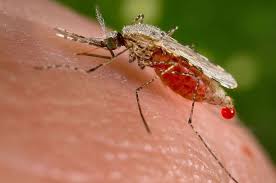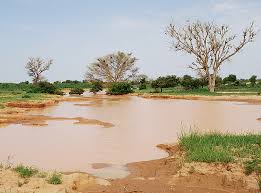MonSoon And Malaria
MonSoon And Malaria: MonSoon rains gives a good feel but at the same time the still water creates mosquitoes which can become the cause of famous MonSoon disease “Malaria”.
Malaria is basically spread by mosquitoes which carry a parasite that eventually leads to this deadly disease. When the mosquito bites you, the parasite gets into your blood stream and multiplies rapidly, worsening the condition.

Thus, prevention of malaria in the peak monsoon seasons, especially in areas that are susceptible to it spreading, is a must. You need to protect yourself against mosquito bites by taking antimalarial medicines.
According to the Malaria Control Program (MCP), malaria is the leading communicable disease in the country and a major element causing illness in Pakistan. Some districts of Pakistan have high endemic incidence of malaria, according to the Economic Survey of Pakistan.
Efforts have been made to eradicate malaria, but some districts still require significant attention for its extinction.
The survey stated that the conditions are poor in 66 districts of Balochistan, Federally Administered Tribal Areas, Khyber-Pakhtunkhwa and Sindh. The number of malaria cases reported in these areas is greater than five per 1,000 people, according to the survey.

The national strategic plan 2015-2020 divided districts in different stratas, in accordance to the extent to which they are affected. Balochistan fell in category I of the strata, indicating a high rate of reported cases.
Here’s how to prevent yourself against mosquito bites.
- First and foremost make sure that you limit outside activity between dusk and dawn. Stay indoors as much as you can.
- Make sure to use insect sprays indoors soon after the sun sets.
- Bed nets are a must in the monsoon, in very swampy areas that are badly hit by the monsoon, as these nets can protect you from harmful mosquitoes promising a good night’s sleep.
- Protective clothing which includes long-sleeved shirts and pants is a must in order to protect yourself from mosquito bites.
- Make use of insect repellent that have good amounts of DEET in them.
- Stay away from places where malaria mosquitoes breed easily. Maintain proper levels of hygiene inside and outside your house.
- Make sure that any waste or garbage is well covered and disposed off as per daily cleaning routine to avoid any breeding of mosquitoes.
- Ensure that there are no puddles or pools of water in or around your house. This is easier said than done for the streets outside, but you’d be alarmed at how quickly mosquitoes breed in small pools of water in buckets or flower pots in and around the house.
Treatment For Malaria
Based on the geographical region, malaria can be extremely severe and at times fatal. It is important for you to carry along your malaria medicines prescribed by doctors, if you are going to a malaria prone area. It is also a must for you to follow the right dosing schedule as advised by the doctor. Make sure your medicines are not expired.
Even after returning from the malaria-prone area, make sure you continue taking your medicine till such time that your environment is totally malaria-free. Generally it is advised that you should continue taking the dose for 1 to 4 weeks even after having recovered from the disease.
Mefloquine and atovaquone/proguanil are two recommended medicines for malaria. Please note that though there are plenty of anti-malaria vaccines available in the market, no evidence fully proves their usage. Best is to prevent yourself from malaria today!
For More Information & Videos Subscribe To Our YouTube Channel
